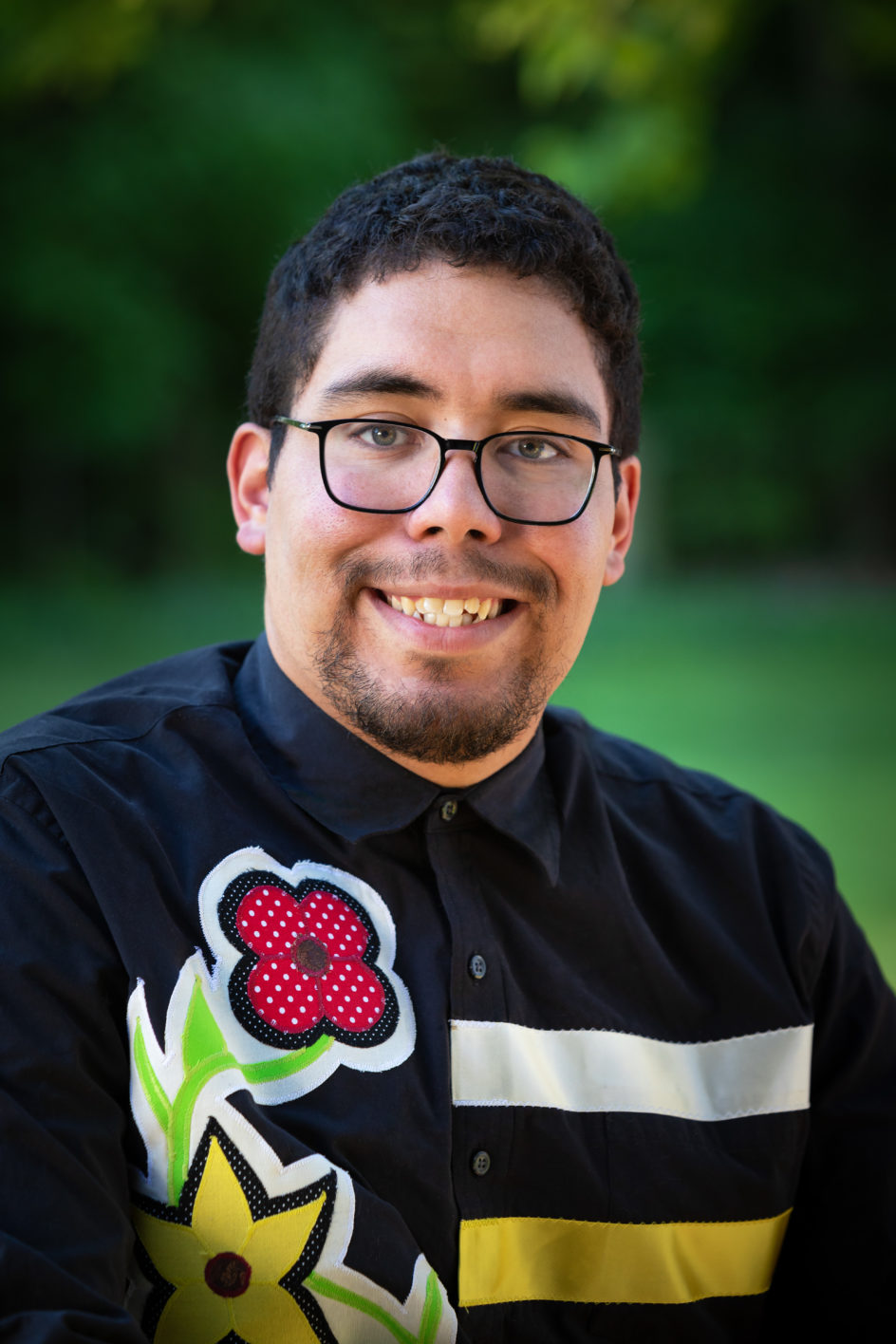Dr. Deondre Smiles is a Black and Ojibwe scholar originally from occupied Dakota territories (Minneapolis). A geographer whose research interests include Indigenous geographies and epistemologies, science and technology studies, and tribal cultural resource preservation and protection, Dr. Smiles earned his PhD in Geography from The Ohio State University in 2020. He currently serves as an Assistant Professor of Geography at the University of Victoria in British Columbia.
This year, Dr. Smiles is also the guest editor for Belt Magazine‘s Indigenous Rust Belt project, a series of stories supported by Ohio Humanities that center the Indigenous life, land, and communities of the greater Midwest region.
What is the origin story of the Indigenous Rust Belt project, and how did you come to be involved?
I was approached by the editorial staff of BELT in the summer of 2021 about organizing a special issue surrounding Indigenous identity in the Rust Belt region, based in part through my connections to the region as an Ohio State graduate and postdoc. Through our conversations, we quickly focused in on everyday Indigenous identity and connections to space, and the ways that they are both visible and sometimes invisible in everyday life in the region. We then began to reach out to participants in a wide variety of fields and from different parts of the Rust Belt region, and the project began to take shape.
How did your experience as an Indigenous scholar influence your work while pursuing your PhD at Ohio State?
One of the most important ways that my experience as an Indigenous scholar influenced my work is through the reinforcement of the importance of community. The Indigenous/Native student population at Ohio State is very small compared to the overall student body (approximately 50-60 out of 61,000), and the number gets even lower when you narrow it down to graduate students (there were about ten when I was a PhD student). The connections that I built with my fellow Indigenous students were very grounding and important for me in my experiences at the University—I am still in touch with many of them. In regard to my academic work, that viewpoint and approach has carried into the research and work that I do with Indigenous communities—the relationships I have with these communities and individuals are not just research relationships, but they become collaborations, where we learn from one another and build relationships that extend beyond the life of individual projects.
How have the humanities impacted your life?
The humanities have been a major part of my life since I was a young child. Things such as art, literature, music, history, and other areas of the humanities have been integral parts of my identity and the ways that I view the world and approach my work—for example, I’ve been a musician since I was 9 years old; the lessons I’ve learned as a musician have been invaluable in everyday life in many ways. In terms of my academic life, I was fortunate enough to be in conversations, starting in my master’s degree, with scholars in fields such as history, English, writing studies, and anthropology, which has made me far more open to interdisciplinary ideas and collaborations—things which have served me well in my academic career and intellectual development. My year in the OSU History department as a postdoc taught me valuable lessons about different approaches to the work that I do, unlocking even more key insights and potential avenues to take my overall research agenda into the future.

